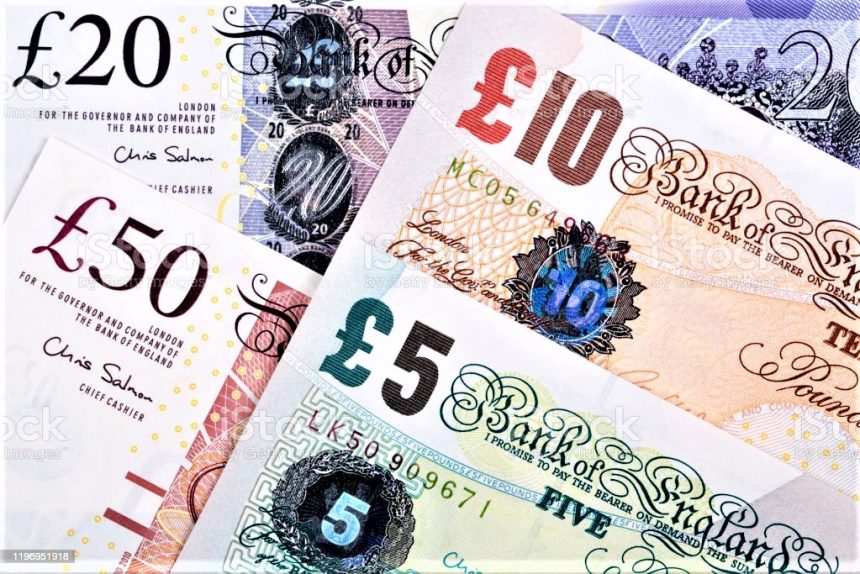Pound falls more as investors remain cautious ahead of UK GDP report
The Pound Sterling (GBP) is gradually falling. As investors get cautious ahead of the United Kingdom’s Q3 GDP report. And Federal Reserve (Fed) Chair Jerome Powell’s remarks on the interest rate outlook. Economists predict a nominal drop in the UK’s growth rate as enterprises underutilized their whole capacity due to weak household expenditure.
Higher borrowing prices forced enterprises to postpone capacity expansion plans, resulting in fewer business investment. The Bank of England (BoE) expects UK labor demand and investment to decline for a longer duration as the economy’s performance remains stagnant. The risks of a recession have risen as Middle East tensions threaten to increase energy costs by disrupting supply lines.
Meanwhile, UK Chancellor Jeremy Hunt stated that he will recommit to tightening total spending later this month in order to reduce price inflation.
Market Movers: Pound falls amid gloomy market sentiment
Pound Sterling is consolidating below 1.2300 as investors await UK Q3 GDP data, which will highlight economic harm caused by the Bank of England’s historically restrictive rate-hiking strategy.
Economists anticipate that the UK economy will have The third quarter contracted by 0.1%, compared to 0.2% growth in the April-June quarter.
The UK’s performance in Q3 is expected to be worse than expected due to the worsening cost of living issue, which has resulted in a severe decrease in retail demand.
Household expenditure fell in two of the previous three months as increased consumer inflation and a rise in energy costs squeezed people’ real incomes.
Consumer spending slowed to 2.6% and 2.5% in October, according to figures from Barclays and the British Retail Consortium (BRC). This contrasted to 4.2% in September, according to Barclays data, and was lower than the BRC data’s 3-month and 12-month averages of 3.1% and 4.2%, respectively.
The decrease in Spending growth illustrates how people are straining to make ends meet in the face of strong headline inflation, which stood at 6.7% in September.
According to Esme Harwood, a director at Barclays, many consumers are reducing non-essential purchases to save for Christmas and anticipated winter fuel expenses.
Business operations declined considerably in the third quarter due to weak retail demand. Which pushed enterprises to slow labor demand and reduce purchasing and inventory.
For the third month in a row, the Services PMI fell below the 50.0 level. That separates growth from contraction, according to S&P Global. For nearly a year, the Manufacturing PMI has been declining.
Construction spending has also decreased dramatically as homebuyers postponed. Their intentions to purchase in order to avoid larger installment payments as a result of increased borrowing. costs.
Chief Economist at the Bank of England, stated on Monday that the dangers of an excessive slowdown in the economy have increased.
Huw Pill, Chief Economist at the Bank of England, stated on Monday. That the dangers of an excessive slowdown in the economy have increased. Despite the central bank’s commitment to getting inflation down to 2% over a two-year period.
Huw Pill warned that the repercussions of a restrictive policy posture will be borne by lower-income households.
In its most recent estimates, the Bank of England stated. That the economy will remain stagnant for the next two years. Which might have an influence on labor demand.
Furthermore According to the most recent UK job survey conducted by KPMG and REC. Employers were hesitant to provide permanent placements and instead depended on temporary workers due to economic uncertainties.
Meanwhile, the conflict between Israel and Hamas widened. As Israeli Defense Forces (IDF) targeted Hamas targets. Tunnels dug by Hamas in Gaza.
Moreover After a dramatic recovery, the US Dollar Index (DXY) is trading flat near 105.70. As investors await Federal Reserve (Fed) Chair Jerome Powell’s speech. Which will provide indications on monetary policy action in December.









